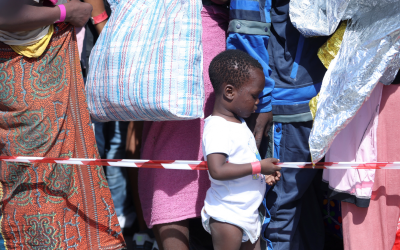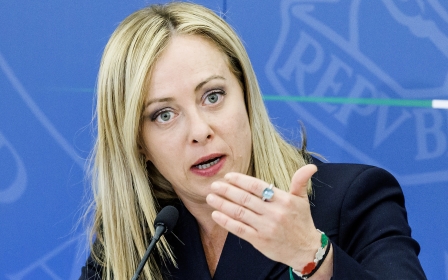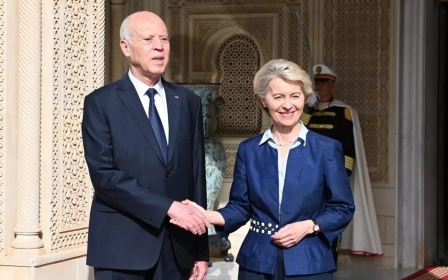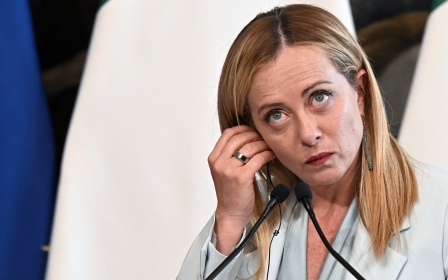Italy-Albania deal to host asylum seekers offshore raises eyebrows
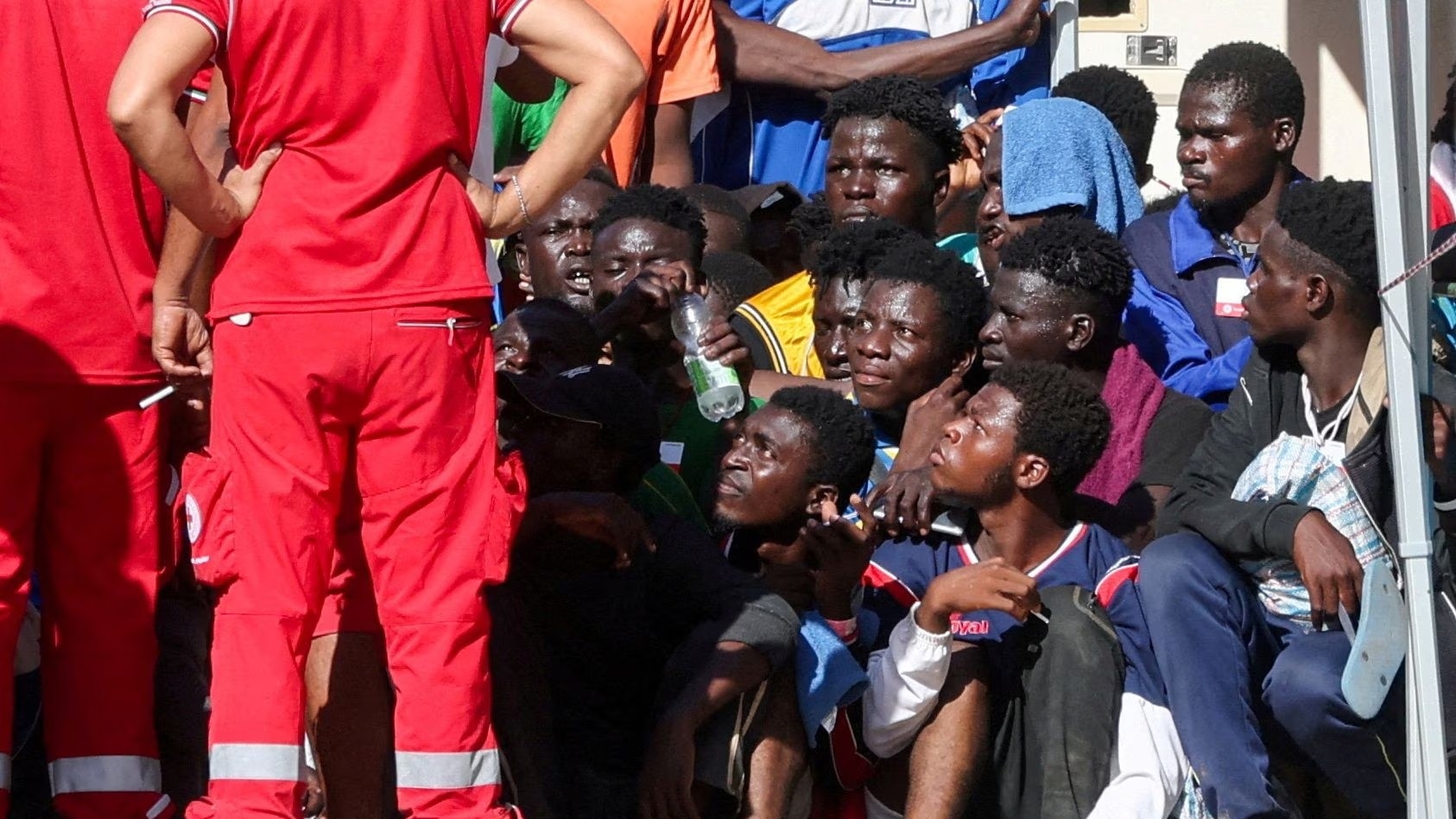
Italy plans to build detention centres in Albania for asylum seekers arriving by sea that could serve as a blueprint for other such deals with regional countries, Italian Prime Minister Giorgia Meloni said in an interview on Tuesday.
The deal initially announced on Monday would see Albania hosting as many as 3,000 people at a time for processing and up to 36,000 migrants annually.
The agreement is the first example of a non-EU country accepting migrants, mainly arriving from North Africa, on behalf of an EU nation.
"I believe it (the deal) could become a model of cooperation between EU and non-EU countries in managing migration flows... I think this agreement features a bold European spirit," Meloni told the Italian daily Il Messaggero.
In Albania, the deal has been greeted with surprise. There was no prior public consultation and the deal on the surface seems to be simply a favour by Albanian Prime Minister Edi Rama towards his Italian counterpart.
“Albania gets nothing from this agreement,” Mentor Beqa, professor of international politics at the Aleksander Moisiu University of Durres, told Middle East Eye from Albania.
'Albania gets nothing from this agreement. Even for the Albanian prime minister, this is a bad deal'
- Mentor Beqa, professor of international politics
“Even for the Albanian prime minister, this is a bad deal. He said that he wouldn't have signed it if it weren't for Italy, to which we owe a great deal of debt. Albania owes nothing to Italy, and vice versa,” added Beqa.
There are also several hurdles that may need to be overcome including repatriating failed asylum applications back to their country of origin in Africa which the Albanian leader said would be "the hardest thing".
Rama also cast doubt on the impact the agreement would have for Italy, suggesting that it would “not solve anything, but she (Meloni) asked us for help and we gave it”.
Beqa warned that Albania would become part of “dehumanising activity”, with only those “deemed suitable for the needs of Italian society” being allowed to go to Italy while the fate of the remaining asylum seekers will be unclear.
'Citizens are nervous'
Reactions in the country have been mixed, said Albanian-based journalist Isa Myzyraj, with some expressing surprise, while others are suggesting that “Albania does not have the capacity to manage a flow of 36,000”.
“We are used to Albanians being people who emigrate, but we did not expect so many refugees,” Myzyraj told MEE.
'The fact that the agreement was made in a total lack of transparency raises even more questions'
- Altin Hazizaj, human rights defender
“No one knows the specifics of this. Almost 24 hours have passed and the Albanian prime minister has not done anything to clarify the situation. Citizens are nervous because they don't know anything about it,” he added.
Meloni is looking to find ways of reducing the number of migrants into the country with arrivals by sea to Italy up by about 65 percent in the year to date to over 145,000.
In Albania, there has also been growing concern that the country has become somewhat of a dumping ground for problems that larger, richer countries have.
Albanian hosts the People's Mojahedin Organization of Iran (MEK), an Iranian militant group, which has embroiled the country in a proxy battle with the US and Iran.
In 2021, Albania also decided to help the US and hosted hundreds of Afghan refugees, sparking a debate in the country about who would pick up the bill.
Like the other decisions, Albanian governments have rarely consulted the public on such important matters.
“Rama did not do any consultation. He has ignored not only the citizens, but also the parliament of the country,” said Myzyraj regarding the latest decision, adding that it could ultimately “damage democracy in the country”.
Altin Hazizaj, a human rights defender in the country, is also concerned about what protections there will be for asylum seekers once they arrive in Albania.
“The fact that the agreement was made in a total lack of transparency raises even more questions. I hope that both Italy and Albania would agree to full independent monitoring from human rights organisations and the Council of Europe,” said Hazizaj, speaking to MEE.
“Most people in the country are dismayed because Albania only a few months ago refused the invitation from the UK to open a similar migrant centre.
"For a long time, there have been rumours about the EU opening such centres in Albania - which now seems to be true. The question now is if this is the only one or are there more to come?,” Hazizaj said.
Middle East Eye propose une couverture et une analyse indépendantes et incomparables du Moyen-Orient, de l’Afrique du Nord et d’autres régions du monde. Pour en savoir plus sur la reprise de ce contenu et les frais qui s’appliquent, veuillez remplir ce formulaire [en anglais]. Pour en savoir plus sur MEE, cliquez ici [en anglais].


